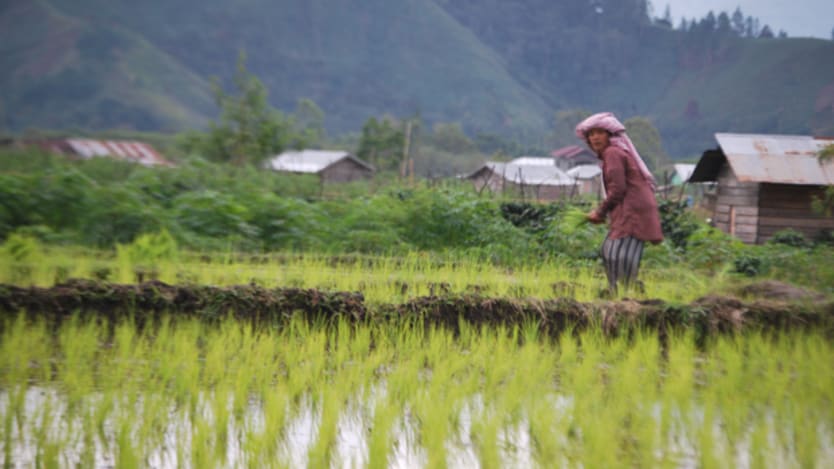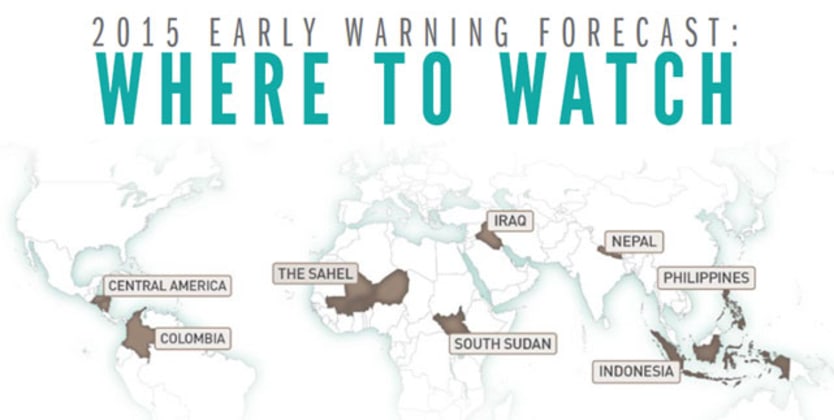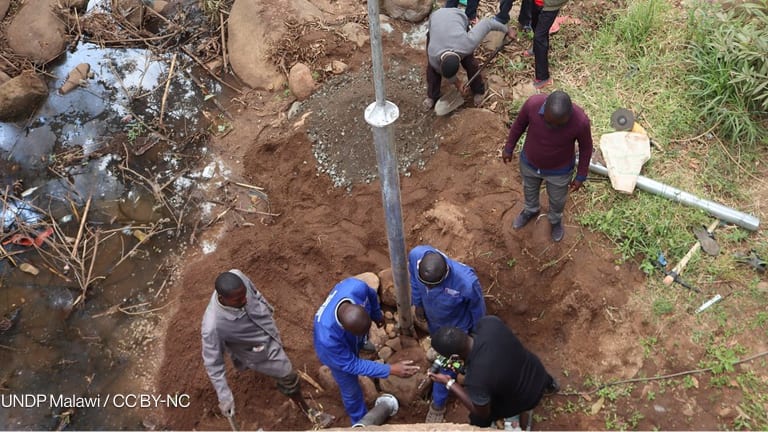
We all know that food security — and the underlying political, economic and environmental stability that makes it possible — is a prerequisite for sustained development and stable societies. But as I look around the world, I see several areas where countries, sometimes even entire regions, face a triple threat of conflict, climate change and vulnerability to natural disasters that threaten food security and income stability. If they are not addressed, these threats are likely to create challenges for trade, international security and global economic growth.
Some hot spots, like Ebola-affected West Africa, are already on the world’s radar for their potentially destabilizing effects such as the possibility of regional food shortages, but other potential crises are not as well-known.
To that end, Lutheran World Relief compiled the “2015 Early Warning Forecast” of regions to watch: Central America (Honduras, El Salvador and Nicaragua), Colombia, Indonesia, Iraq, Nepal, the Philippines, Sahel region (Mali, Burkina Faso and Niger) and South Sudan.

These areas deserve a spotlight because less obvious natural disaster risks, effects of political insecurity and the worsening effects of climate change including increased flooding, rising sea levels, more severe and frequent storms, and drought threaten the food and economic security of hundreds of millions across the areas on this list.
Some examples that haven’t (yet) made headline news:
● In Nepal, a changing climate is melting glacial ice in the Himalayas, causing increased downstream flooding. Deforestation is also raising the risk and potential effects of flash floods and landslides.
● In Central America, as a result of two consecutive years of poor harvests due to rainfall irregularity, drought and the devastating coffee fungus known as leaf rust, the region has experienced significant crop loss. An estimated 2.5 million people are already affected by the loss of staple crops such as beans and maize, with conditions only expected to worsen in a region where, at best, more than 34 percent of the population live below the poverty line.
● In Iraq, much of the country’s agricultural production is in areas controlled by the Islamic State group. Reduced harvests could lead to even greater food insecurity across the country, putting millions at risk.
● In Indonesia, more than a third of the population depend on agriculture for income, which is vulnerable to coastal flooding due to rising sea waters, land-damaging earthquakes or another major tsunami.
● In the Sahel region of West Africa, the cumulative effect of repeated food, conflict and associated humanitarian crises, coupled with more frequent and intense climate shocks, has eroded vulnerable households’ coping mechanisms and families are struggling with mounting food insecurity.
Without secure livelihoods, we cannot truly have security. But there is hope. By establishing safety net systems that we so often take for granted in the United States, strengthening local economies and responding earlier through early warnings of future crises, we can help people build and maintain their livelihoods as we equip them to weather future disasters.
In order to help address and mitigate the worst effects of disaster, we must work collectively to inform and engage the international community about these “creeping” food and economic insecurity disasters to share what works and innovations for sound management of natural resources and rural communities’ physical assets in order to improve resilience and livelihoods.
Last but not least, we should continue to advocate to decision-makers in Washington, D.C., for a more coherent global food security policy, which includes robust funding for locally owned programs benefitting small-scale producers. While less than 1 percent of the federal budget goes toward poverty-focused relief and development, fiscal constraints and politics may put at risk this small but critical contribution.
Potential crises like these may seem isolated but they have ripple effects. I saw it time and time again during my three decades in government service, and now as the president of an international development and relief organization. What begins as a localized food shortage in affected countries grows into a bigger problem as family income shrinks and local markets experience disruptions which could then lead to political instability and riots.
Everything we invest in preventing or mitigating the worst effects of these kinds of crises is also an investment in regional stability and security and in our own well-being here in the United States and for the rest of the world.
We have to take action now instead of waiting for the worst. An ounce of prevention could be worth countless lives down the line.
Is your organization working in places mentioned in this report? Let us know of local efforts to mitigate effects of climate change by commenting below.
Join the Devex community and access more in-depth analysis, breaking news and business advice — and a host of other services — on international development, humanitarian aid and global health.








